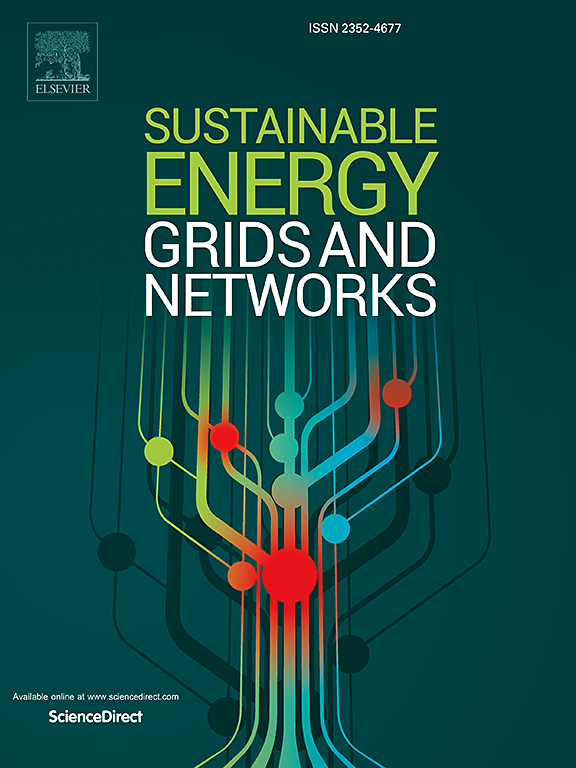电力和天然气系统的综合实时调度
IF 4.8
2区 工程技术
Q2 ENERGY & FUELS
引用次数: 0
摘要
由于电力和天然气系统之间的相互依赖性日益增强,这两个系统的一体化运行吸引了许多研究人员的关注。本文提出了一种新颖的综合系统实时滚动调度框架,旨在通过控制各种资源的可用灵活性,实现经济上最优、技术上安全的燃气系统实时运行。首先执行解耦的日前调度,以确定机组承诺和天然气线路包目标决策,然后将其作为建议的综合实时调度模型的输入。通过部署来自不同系统间灵活性提供商的四种控制行动,以分级程序执行日内天然气系统控制。所做的分析表明,根据控制参数的选择,即使在计划供气严重受限的情况下,也可以引导两个系统的灵活性资源的激活,以缓解线路组偏差。所提出的控制框架在希腊电力和天然气系统上进行了测试,为在不同的前瞻视野下启动实时天然气系统平衡的控制行动提供了重要启示。本文章由计算机程序翻译,如有差异,请以英文原文为准。
Integrated real-time dispatch of power and gas systems
The integrated operation of the electricity and gas systems has attracted the attention of many researchers due to the ever-increasing interdependency between the two systems. In this paper, a novel framework for the real-time rolling dispatch of the integrated system is presented, targeting to attain the economically optimal and technically secure gas system real-time operation through the control of the available flexibility procured by various resources. A decoupled day-ahead scheduling is initially executed to determine unit commitment and gas linepack target decisions, which are then utilized as inputs to the proposed integrated real-time dispatch model. Intra-day gas system control is executed in a hierarchical procedure through the deployment of four control actions from various inter-system flexibility providers. The presented analysis illustrates that, based on the selection of control parameters, the activation of flexibility resources from both systems can be steered in such a way as to alleviate linepack deviations, even in cases of severely limited scheduled gas supply. The proposed control framework is tested on the Greek power and gas systems, providing significant insights regarding the activation of the control actions for the real-time gas system balancing in different look-ahead horizons.
求助全文
通过发布文献求助,成功后即可免费获取论文全文。
去求助
来源期刊

Sustainable Energy Grids & Networks
Energy-Energy Engineering and Power Technology
CiteScore
7.90
自引率
13.00%
发文量
206
审稿时长
49 days
期刊介绍:
Sustainable Energy, Grids and Networks (SEGAN)is an international peer-reviewed publication for theoretical and applied research dealing with energy, information grids and power networks, including smart grids from super to micro grid scales. SEGAN welcomes papers describing fundamental advances in mathematical, statistical or computational methods with application to power and energy systems, as well as papers on applications, computation and modeling in the areas of electrical and energy systems with coupled information and communication technologies.
 求助内容:
求助内容: 应助结果提醒方式:
应助结果提醒方式:


